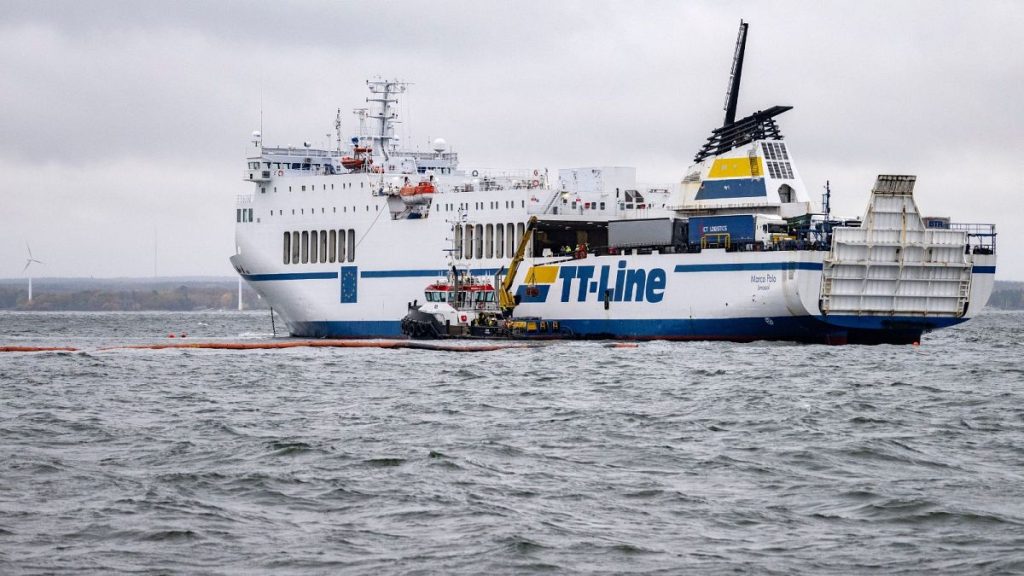أظهر الباحثون أن شركات الشحن قد استردت تكلفة تقنية “الفلاتر” وتستفيد الآن من الوقود الأكثر تلوثاً. تضيف هذه التكنولوجيا للتنقية المزيد من التلوث في البحر البلطيقي، من خلال نظام التنقية الخاص بالسفن. يُضخ هذا النظام مياه البحر لرش الغازات الناتجة عن حرق الوقود الثقيل الذي تستهلكه السفن، مما يحولها إلى مادة سائلة قبل وصولها إلى الهواء. تقدر حوالي 200 مليون متر مكعب من هذه المياه السامة “الفيلترية” يتم إطلاقها مرة أخرى في البحر البلطيقي سنويًا، مما أدى إلى تكلفة تزيد عن 680 مليون يورو في الأضرار البحرية بين عامي 2014 و 2022.
تساعد الفلاتر على الحد من تلوث الهواء، وبذلك تلتزم بالقواعد التي أدخلتها منظمة الإبحار الدولية في عام 2020. ومع ذلك، يتم امتصاص الكبريت الذي يمنع من الدخول إلى الغلاف الجوي من قبل الماء بدلاً من ذلك، مما يؤدي إلى حدوث حموضة شديدة، وملوثات مثل المعادن الثقيلة والمركبات العضوية السامة. يعتبر نسبة 25 في المئة من الطلب العالمي على الوقود الثقيل.
تأتي هذه الدراسة الجديدة في سياق مناقشة ساخنة حول حظر تصريف مياه الفلاتر. تشير كلميرز إلى أن المسألة مدرجة على جدول الأعمال في مستويات متعددة داخل منظمة الإبحار الدولية، وقد تمت مناقشتها أيضًا على مستوى الاتحاد الأوروبي بالإضافة إلى المستويات الوطنية مثل البرلمان السويدي. تحظر الدنمارك مؤخرًا تصريف مياه الفلاتر في مياهها الإقليمية، وهي قرار انضمت إليه عدة دول أوروبية أخرى مثل ألمانيا وفرنسا والبرتغال. في المجمل، هناك نوع من القيود أو الحظر على الفلاتر في 17 دولة أعضاء في الاتحاد الأوروبي والمملكة المتحدة والنرويج.
في هذا السياق، تأمل لوند هيرمانسون أن تحظى المسألة بأولوية أيضًا في البرلمان السويدي. هذه فرصة تكون شجرة الفاكهة المنخفضة حيث يمكننا تقليل تأثيرنا السلبي على البيئة البحرية الحيويةDebate about one of the shipping industry’s most polluting practices – discharging ‘scrubber’ water in the Baltic Sea – has intensified in recent years. Researchers from Chalmers University of Technology in Sweden have found that shipping companies that invested in scrubber technology have already recouped the cost and are profiting from continuing to use cheaper, dirtier fuel. This practice has led to severe acidification and pollution in the Baltic Sea, but until recently, has largely flown under the radar. However, with incidents like the Marco Polo ferry running aground in Sweden, shedding tonnes of oil and impacting local wildlife, public attention has been drawn to the issue. The new study published in Nature Sustainability journal reveals that scrubber water damage cost more than €680 million in marine damage between 2014 and 2022. The total surplus by the end of 2022 for all the 3,800 vessels studied was €4.7 billion, highlighting the significant financial benefit to the companies despite the environmental fallout.
The use of scrubber technology is intended to reduce air pollution by capturing sulphur emissions from ships’ exhaust. However, the sulphur absorbed by the water instead leads to severe acidification, as well as the release of heavy metals and toxic organic compounds into the sea. With more than 700 ships estimated to have scrubbers in the Baltic Sea alone, and roughly 5,000 globally, the impact of this practice is far-reaching. This accounts for around 25 per cent of the global demand for heavy fuel oil, despite making up only five per cent of the total global fleet. The researchers suggest that the majority of shipping companies that invested in scrubbers have already broken even and are now profiting from the use of cheaper fuel, highlighting an ongoing conflict of interest between economic gains and environmental concerns.
The issue of banning scrubber water discharge is currently being discussed at various levels, including within the International Maritime Organization (IMO) and at the EU and national levels. Several European countries have already implemented restrictions or bans on scrubber discharges in their waters, including Denmark within 12 nautical miles of its coast, as well as Germany, France, and Portugal. While the Swedish Parliament has yet to make a decision on the matter, local areas like the Port of Gothenburg have already outlawed the practice. The researchers hope that this issue will be prioritized in the Swedish Parliament and that steps will be taken to reduce the negative impact on the marine environment. The new study sheds light on the financial benefits to shipping companies at the expense of marine ecosystems, underscoring the need for stronger regulations and enforcement to protect vulnerable seas like the Baltic Sea.
كم هي الأضرار التي تحدثها “مياه التنظيف” في بحر البلطيق الأوروبي؟
مقالات ذات صلة
مال واعمال
مواضيع رائجة
النشرة البريدية
اشترك للحصول على اخر الأخبار لحظة بلحظة الى بريدك الإلكتروني.
© 2025 خليجي 247. جميع الحقوق محفوظة.


